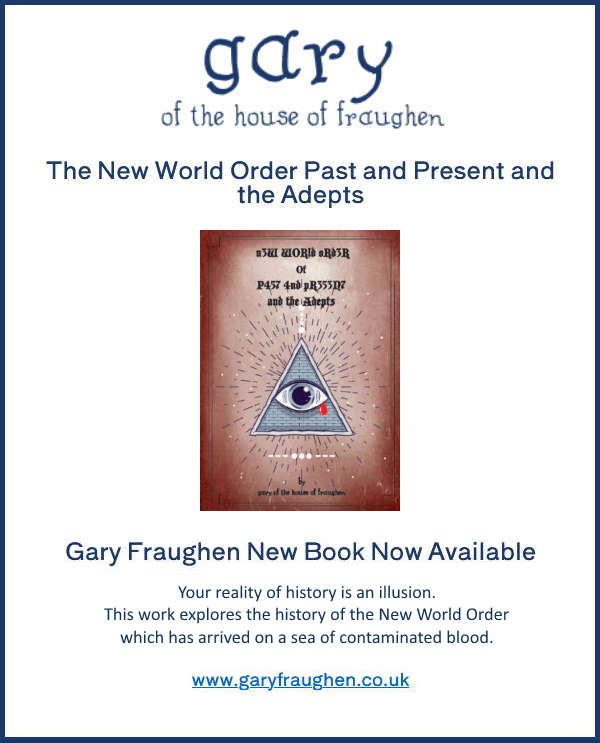AI can replace elections which might choose wrong leaders – WEF global dictatorship
Sat 12:38 am +00:00, 20 Jan 2024 1
The annual meeting of the World Economic Forum wrapped up this week with calls for digital IDs, rapid development of new vaccines, more partnerships with corporate media outlets like The New York Times, and widespread acceptance and proliferation of artificial intelligence in all areas of society, including healthcare and education.
Miss a day, miss a lot. Subscribe to The Defender’s Top News of the Day. It’s free.
The threat of a new pandemic and so-called “misinformation.” The future of democracy. The future impact of artificial intelligence (AI) in society. The “green agenda.”
These were just some of the topics on the agenda at the annual meeting of the World Economic Forum (WEF) in Davos, Switzerland, which concluded today.
Some of the highlights of this year’s meeting included warnings of how a yet-unknown “Disease X” may cause the next pandemic, discussions on how AI could lead to the rapid development of new vaccines, and talk about how AI could either fall victim to — or filter out — so-called “misinformation” and “disinformation.”
‘We don’t want to wait a year before we get the vaccine’
Warnings were accompanied by more optimistic — from the perspective of the meeting’s participants — outlooks about the role AI could play in tackling future pandemics, such as through the rapid development of new vaccines.
Jeremy Hunt, the U.K.’s chancellor of the Exchequer, said during a Thursday panel discussion — in which Pfizer CEO Albert Bourla participated — that “when we have the next pandemic, we don’t want to have to wait a year before we get the vaccine.”
“If AI can shrink the time it takes to get that vaccine to a month, then that is a massive step forward for humanity,” Hunt said.
Digital ID ‘very necessary’ for tracking the unvaccinated
During another Thursday panel discussion, Queen Máxima of the Netherlands said that digital ID is “very necessary” for the provision of a range of public services — and suggested that it can be used to track the unvaccinated.
Digital ID “is very necessary for financial services, but not only. It is also good for school enrollment, it is also good for health — who actually got a vaccination or not,” she said.
Bourla elaborated on the possibilities he sees for AI in the realm of healthcare.
Answering a question from CNN journalist Fareed Zakaria, Bourla said, “Our job is to make breakthroughs that change patients’ lives. With AI, I can do it faster and I can do it better.”
One example identified by Bourla was the role AI played in developing Paxlovid, a prescription oral medication marketed as a treatment for COVID-19.
“It was developed in four months,” Bourla said, whereas development of such a drug “usually takes four years.” He said AI helped significantly reduce the amount of time needed for the “drug discovery” process, where “You really synthesize millions of molecules and then you try to discover within them, which one works.”
He credited this breakthrough with saving “millions of lives.”
“I truly believe that we are about to enter a scientific renaissance in life sciences because of this coexistence of advancements in technology and biology,” Bourla said. “AI is a very powerful tool. In the hands of bad people [it] can do bad things for the world, but in the hands of good people [it] can do great things for the world.”
World Health Organization Director-General Tedros Adhanom Ghebreyesus warned on Wednesday during the “Preparing for Disease X” panel discussion that the world must prepare for a future pandemic, which may be caused by a yet-unknown “Disease X.”
Panelists warned that “Disease X” — which is included in the WHO’s list of “priority diseases” — could “result in 20 times more fatalities than the coronavirus pandemic.”
Aside from “Disease X,” Tedros and other participants on the panel also discussed the need for a “pandemic agreement” and the urgency of having it approved at this year’s World Health Assembly, to be held between May 27 and June 1 in Geneva.
‘We’re going to have digital doctors, digital people’
During the “Technology in a Turbulent World” panel, panelists offered predictions as to other ways in which AI is likely to become integrated into people’s lives.
Marc Benioff, chair and CEO of Salesforce, said that while “AI is really not at a point where we’re replacing human beings, it’s really at a point where we’re augmenting them.”
He cited, as hypothetical examples, the possibility that WEF participants could ask an AI application such as ChatGPT “what’s some good questions I could ask” during their panel, or that radiologists could use AI “to help read my CT scan into my MRI.”
“We’re just about to get to that breakthrough where we’re going to go, ‘Wow, it’s almost like it’s a digital person,” Benioff said. However, reflecting the theme of this year’s WEF meeting — “Rebuilding Trust” — he added, “When we get to that point, we’re going to ask ourselves, ‘Do we trust it?’”
“We’re going to have digital doctors, digital people, these digital people are going to merge and there’s going to have to be a level of trust,” Benioff said.
Similarly, Sam Altman, CEO of OpenAI — which maintains a partnership with Microsoft — said that AI will help “everyone’s job … operate at a little bit higher of a level of abstraction.”
“We will all have access to a lot more capability and we’ll still make decisions. They may trend more towards curation over time, but we’ll make decisions about what should happen in the world,” he said.
Julie Sweet, chair and CEO of Accenture, also expressed optimism over AI’s future role, saying that AI is “massively going to improve social services.”
To build “trust,” Benioff called for more regulation, alluding to the social media ecosystem and “misinformation” on such platforms.
“We have to also turn to those regulators and say, ‘Hey, if you look at social media over the last decade, it’s been kind of a f***ing s**t show.’ It’s pretty bad. We don’t want that in our AI industry. We want to have a good healthy partnership with these moderators and with these regulators.”
Altman suggested that one way to develop such “partnerships” is to train AI to locate and identify information from certain preferred sources.
He said:
“What we want to do with the content owners, like The New York Times and deals that we have done with many other publishers, and we’ll do more over time, is when a user says, ‘Hey, ChatGPT, what happened at Davos today?,’ we would like to display content, link out, show brands of places like The New York Times or the Wall Street Journal or any other great publication and say, ‘Here’s what happened today. Here’s this real-time information.’”
Bourla also called for more regulation of AI, saying that while he was “certain right now that the benefits clearly outweigh the risks,” he feels “we need regulation right now.”
Hunt, however, said that minimal regulation is the best approach at this time.
“I think we need to be light touch because … it’s such an emerging stage. You can kill the golden goose before it has a chance to grow,” he said.
AI could be used to educate students about ‘misinformation’
WEF leaders also addressed the future role of AI in education, in particular during the WEF’s “Education Meets AI” panel on Thursday.
According to Forbes, panelists, including government officials from Slovenia and the United Arab Emirates, suggested that AI will provide “novel opportunities for deeply personalized learning and tutoring.”
Ahmad bin Abdullah Humaid Belhoul Al Falasi, minister of education of the United Arab Emirates, called this “democratic tutoring,” suggesting that AI would provide “scalable” tutoring “available to all” outside the classroom, which will supplement classroom teaching and which “leaves the hardest part — the soft skills — to teachers.”
Nzinga Qunta, an anchor with the South African Broadcasting Corporation, suggested that such tutoring would not be restricted in terms of age or physical space.
Panelists also provided reassurances that AI would not lead to the elimination of human jobs — but suggested that people won’t lose their jobs due to AI “but by people who know how to use AI,” Forbes reported.
The “risk of mis- and disinformation” was also highlighted during the discussion, with panelists suggesting that “critical thinking” can enable students to identify the “hazardous” risks of “misinformation” and “disinformation.”
‘Misinformation’ can lead to ‘civil unrest’
“Misinformation” was indeed highly prominent on the agenda of this year’s WEF meeting. The WEF’s Global Risks Report, released Jan. 10, named “misinformation” and “disinformation” derived from AI as the top risk facing the world over the next two years, and the fifth-highest risk over the next decade.
According to the report, “Foreign and domestic actors alike will leverage misinformation and disinformation to widen societal and political divides” in the next two years, posing a risk to elections in countries such as the U.S., U.K. and India and a risk of “civil unrest” across the world.
“What’s more, false information and societal polarization are inherently intertwined, with potential to amplify each other,” according to Saadia Zahidi, the WEF’s managing director, for which “innovation and trustworthy decision-making” are required. However, she said this “is only possible in a world with alignment on the facts.”
‘There is a risk the wrong leaders are elected’
The WEF’s warnings about the “threat” of “misinformation” and “disinformation” is closely aligned with fears expressed by WEF meeting participants regarding how AI could impact democracy and the electoral process.
In recent days, a video went viral on social media showing WEF co-founder and chairman Klaus Schwab in a discussion with Sergey Brin, co-founder and former president of Google. Schwab suggested a hypothetical scenario where “you do not even have to have elections anymore” because AI “can already predict the winner” — a scenario Brin did not explicitly dismiss.
Even though that video was frequently presented in social media posts as originating from this year’s WEF meeting, it is actually from a discussion at the WEF’s annual meeting in 2017. Yet, other statements at this year’s meeting also referenced elections and governance.
During a panel discussion today on “Global Risks: What’s in the Mail?” Haslinda Amin, Bloomberg News’ chief international correspondent for Southeast Asia, suggested “there is a risk the wrong leaders are elected” in this year’s elections in key countries.
Responding to Amin, Douglas L. Peterson, president and CEO of S&P Global, said this “is one of the top risks for this year” and added, “We also need to make sure we stay engaged through global institutions, like the UN, like NATO.”
And during his special address at the WEF meeting, António Guterres, the United Nation’s secretary-general, called for “effective mechanisms of global governance” as part of “a new multipolar global order.”
How the WHO’s rules embedded secret, undemocratic “voting” (or not) for a moment such as this
All that’s missing is absentee ballots but they have absentee counting instead
| |
| |||||||||||||||
When the delegates don’t want their constituents to know how they voted on a controversial matter, such as handing sovereignty of their nation over to the WHO, they can simply decide to hold a secret ballot. And the decision to hold a secret ballot may not be recorded or held by roll call. Sweet, huh?
It gets better. The ballots are moved into another room to be counted. Is that room in Arizona? Tammany Hall?
Elections are held by secret ballot. Or not. Maybe there will be no vote to elect a candidate or slate of candidates. Instead there will be horse trading.
This is how it works at the agency that wants to control your medical care, what you are allowed to see, and manage pandemic “prevention” for the world by collecting, creating and housing more deadly pathogens. They would be happy to invoke One Health to manage the entire world—if you let them.
From the WHO Constitution, page 193
| Who Constitution Bd 49th En 1.95MB ∙ PDF file | ||
| ||





















Such a shame that this article is mostly unreadable.